Why Switch to Nonpartisan Redistricting?
Packed meeting at state Capitol hears experts testify on Iowa's system and why it's fairer and cheaper for taxpayers.
Few legislative causes have drawn as much interest and as little traction as redistricting — the drawing of new voter boundaries after each 10-year census.
The Republicans who control the state Legislature have rebuffed pressure to hold hearings on bills, AB 185 and SB 163, to shift responsibility for this task from politicians to the Legislative Reference Bureau, a nonpartisan state service agency.
Among those appearing, via Skype, was Ed Cook, legal counsel for Iowa’s Legislative Service Agency, which has run nonpartisan redistricting in that state since 1981. He said the process “has really stood the test of time” and proven popular.
Districts are redrawn using objective criteria, subject to legislative approval. “We do not look at any political information,” Cook said, such as where current lawmakers happen to live or which party a district’s voters tend to support.
The cost of this process, Cook said, is “not significant.” No approved map has ever been challenged in court. Some districts still lean Republican or Democratic but, Cook boasted, “redistricting doesn’t get in the way of a trend in an election.”
In other words, the fortunes of Iowa’s political parties hinge on how much support they receive at the polls, not how cleverly they manage to carve out districts to their advantage.
In contrast, testified University of Wisconsin political science professor Ken Mayer, Wisconsin’s process “is divisive, polarizing, expensive, litigious, and undermines basic notions of representation.”
The last redistricting, after the 2010 census, cost taxpayers more than $2 million and, as usual, was challenged in court. Mayer said the maps were “carefully drawn to maximize the partisan advantage for the Republican Party,” adding that Democrats “would have done the same thing” had they been in charge.
In the 2012 election, Republicans increased their control of the state Legislature despite getting substantially fewer total votes than Democrats. This was done, Mayer said, by packing Democrats into safe districts while creating a slight edge for Republicans in many more.
The result, charged Schultz, breeds public anger and mistrust: “They know that the system isn’t fair.”
Hypothetical nonpartisan maps produced by the Legislative Reference Bureau at Cullen’s request show how different things could be. The redrawn districts are much cleaner (for a side-by-side comparison, see below or tinyurl.com/mfn9a4p) and more competitive.
Had these maps been in place in 2012, Cullen’s analysis found, 28 Assembly and five Senate races would have been decided by a 6-point margin or less. In the actual election, only 11 Assembly races and one Senate race were this close.
Overall, the new maps would have favored legislative Democrats in 2012, consistent with their vote totals. But in 2010, a banner year for Republicans, the GOP would still have come out on top.
The antipathy of state Republicans to altering a system that has worked to their benefit is undiminished. Aside from Schultz, no GOP lawmaker supports a resolution calling for an advisory referendum on nonpartisan redistricting.
Chad Weininger, R-Green Bay, one of the committee chairs blocking a hearing on AB 185, has denounced it as a “gimmick,” since the Legislature would not have to follow this method. Mayer conceded the point, but only in the sense that lawmakers can always pass new laws. By this standard, he said, “virtually everything the Legislature does is a gimmick.”
At the hearing, Schultz, who is not seeking reelection, said every candidate for state office should be asked about redistricting. Cullen, who is also stepping down, said it was an issue which the public, not politicians, must take the lead.
“This is going to be a bottom-up solution,” he told the crowd. “It will not come out of this building. It will come from all of you.”
Congressional Districts
(Hypothetical Non-Partisan maps on the right)
State Senate Districts
(Hypothetical Non-Partisan maps on the right)
State Assembly Districts
(Hypothetical Non-Partisan maps on the right)
Bill Lueders is the Money and Politics Project director at the Wisconsin Center for Investigative Journalism (www.WisconsinWatch.org). The Center produces the project in partnership with MapLight.
The Center collaborates with Wisconsin Public Radio, Wisconsin Public Television, other news media and the UW-Madison School of Journalism and Mass Communication. All works created, published, posted or disseminated by the Center do not necessarily reflect the views or opinions of UW-Madison or any of its affiliates.
-
Legislators Agree on Postpartum Medicaid Expansion
 Jan 22nd, 2025 by Hallie Claflin
Jan 22nd, 2025 by Hallie Claflin
-
Inferior Care Feared As Counties Privatize Nursing Homes
 Dec 15th, 2024 by Addie Costello
Dec 15th, 2024 by Addie Costello
-
Wisconsin Lacks Clear System for Tracking Police Caught Lying
 May 9th, 2024 by Jacob Resneck
May 9th, 2024 by Jacob Resneck


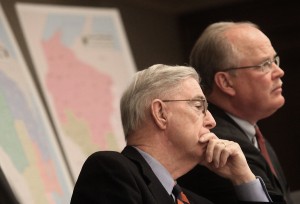
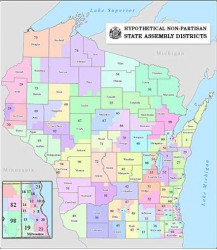
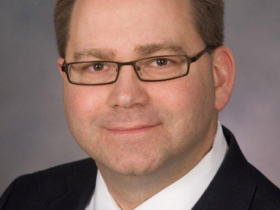
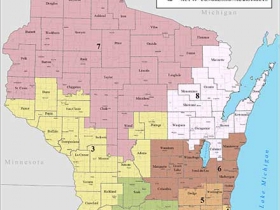
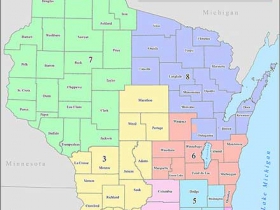
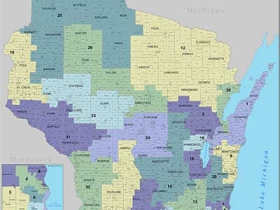
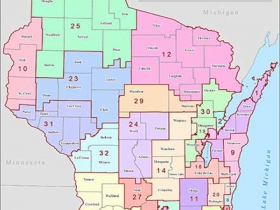
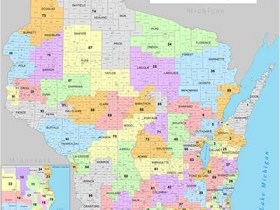
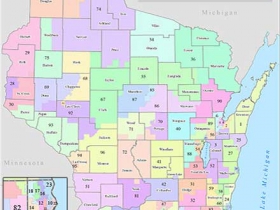




















Just what we need. The liberal democratic hack “bipartisan” redistricting board. How about they introduce this when they control both chambers and the governorship on a census year if they want it so much….but they wouldn’t.
I’m a bit tired of the rhetoric about Republicans gaining control of state seats despite getting less overall votes than the Democrats. If you scan 2012 results for Milwaukee County alone there are about 100,000 votes more for Democrats due to no Republicans running for the office. It’s not that big of a deal.